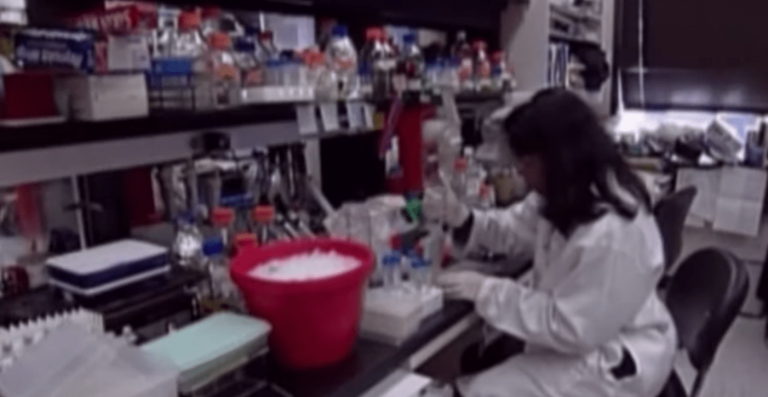Auditors from the Department of Health and Human Services’ (HHS) Office of Inspector General (OIG) will be investigating whether the National Institutes of Health (NIH) has properly managed the grants given to research institutions, which also includes funds given to the Wuhan lab in China that is said to be involved in controversial “gain-of-function” research.
There is growing scrutiny around the Wuhan Institute of Virology (WIV) as the possible origin of the SARS-CoV-2 virus, which causes COVID-19.
“OIG has previously identified NIH’s oversight of grants to foreign applicants as a potential risk to the Department meeting program goals and the appropriate use of Federal funds. NIH must manage and administer Federal awards to ensure that Federal funding is expended and associated programs are implemented in full accordance with statutory and public policy requirements,” the office said in a June 15 update to its work plan.
Suspicious grants
Around 80 percent of NIH funding goes to support research grants, including grants given to institutions outside the U.S.
The update states that grantees are responsible for complying with federal requirements that come as part of the grant. Grantees that operate as “pass-through” entities are obliged to monitor activities of sub-recipients to make sure that the funds are only used for authorized purposes. OIG will review NIH’s monitoring of selected grants as well as the grantees’ use and management of NIH funds in accordance with federal requirements.
Success
You are now signed up for our newsletter
Success
Check your email to complete sign up
The OIG investigation was prompted by a request from Republican Senator Joni Ernst in which she asked the agency to investigate the failure of EcoHealth Alliance (EHA) in complying with the disclosure requirements of the funds received under NIH grants.
The issue is regarding funds dispersed by the National Institute of Allergy and Infectious Diseases (NIAID) to EHA, a nonprofit foundation based in New York. NIAID is one of the 27 institutes and centers which make up the NIH, which, in turn, is an agency of the HHS; Director of NIAID is Dr. Anthony Fauci, chief medical advisor to the U.S. President.
At a hearing of the House Appropriations subcommittee in late May, Fauci stated that NIAID grants were funneled via EHA to the WIV to fund “a modest collaboration with very respectable Chinese scientists who were world experts on coronavirus.”
Fauci revealed that the NIH had earmarked $600,000 for the Wuhan lab over a five-year period.
Meanwhile, he denied that the funds were used in gain-of-function research. “That categorically was not done,” Fauci said Gain-of-function research involves modifying a virus capable of infecting humans to make it more pathogenic or transmissible. Such research is usually done as a way to predict emerging infectious diseases and better prepare therapeutics and vaccines to counter them.
EcoHealth Alliance and gain-of-function research
The U.S. had banned federal funding of gain-of-function research in 2014 due to concerns of supercharged viruses leaking from labs. In 2017, the ban was lifted and funding for such activities resumed after the Potential Pandemic Pathogens Control and Oversight (P3CO) Framework was formed at the HHS.
P3CO was tasked with reviewing grants to projects that dealt with enhancing dangerous pathogens. When NIAID awarded grants to EcoHealth Alliance, it failed to refer the case to the P3CO committee, which means that EHA was funded with NIH grant money without a proper review.
NIH and NIAID have “systematically thwarted–indeed systematically nullified–the HHS P3CO Framework by declining to flag and forward proposals for review,” Richard H Ebright, a professor of chemical biology at Rutgers University, said to the Daily Caller News Foundation (DCNF).
An annex to a recently released World Health Organization’s COVID-19 origin report describes the WIV as being involved in work that uses “recombinant viruses” in tests involving bat coronaviruses. Ebright noted that a description of activities at the Wuhan lab matches that of gain-of-function research.
Justin Goodman, White Coat Waste Project’s vice-president for advocacy and public policy, recently revealed to reporters that EcoHealth Alliance had received $61.5 million since 2008 in taxpayer money. White Coat is a Washington-based advocacy group that aims to stop taxpayer-funded animal experiments.
“Just since the pandemic began, they’ve gotten $19 million, and that’s $17 million from the [Department of Defense] DOD and over $2 million from NIH… So even though [EcoHealth] has been violating the law, NIH has been notified they’ve been violating the law, NIH continues to cut checks to the EcoHealth Alliance, both for research they’re doing in China and other places,” Goodman said.
In April, three Republicans wrote a letter to EcoHealth Alliance, questioning the nonprofit regarding its relationship with the Wuhan Institute of Virology. The letter states that WIV lists EHA as one of its eight international partners and the only partner from the United States.
It says that the nonprofit has done research with the Wuhan lab from as far back as 2003, and that the research was captured in a database which is estimated to contain information on “500 coronaviruses identified by EHA, and at least 100 unpublished sequences of bat beta coronaviruses that are relevant to the investigation of the SARS-CoV-2 origin.”
















